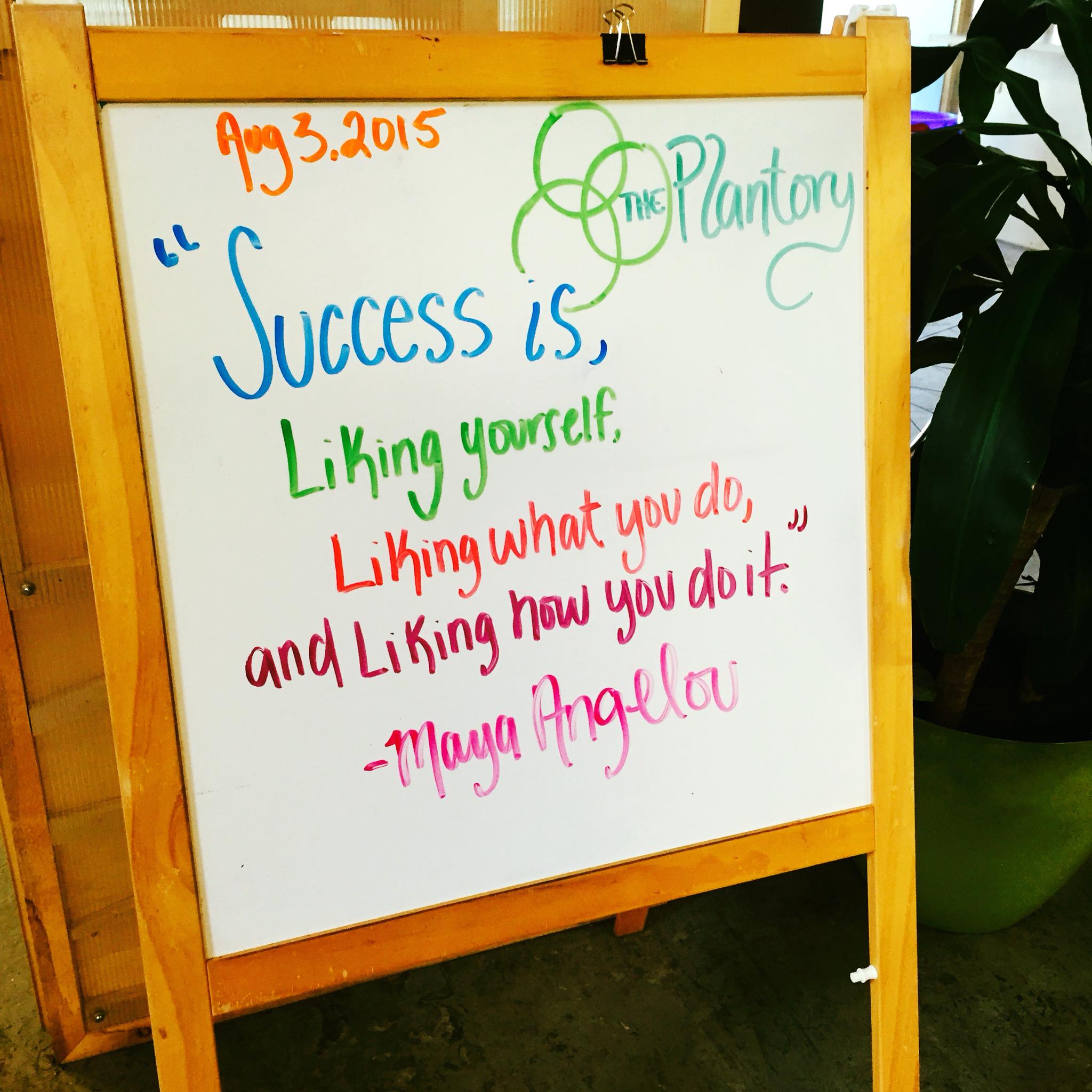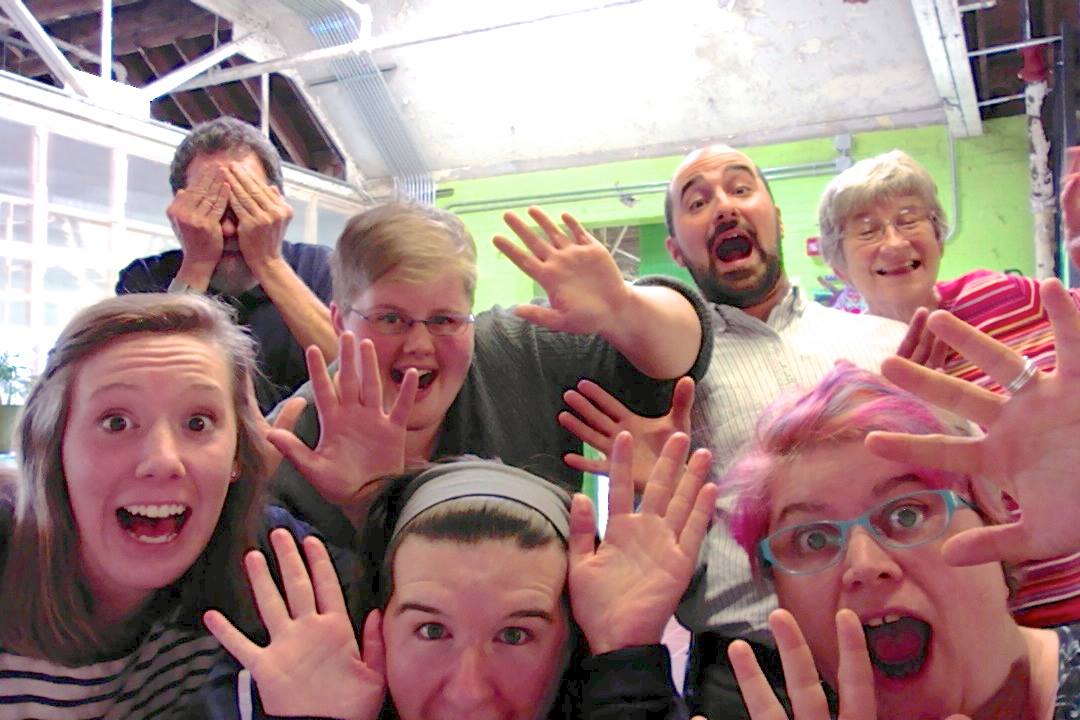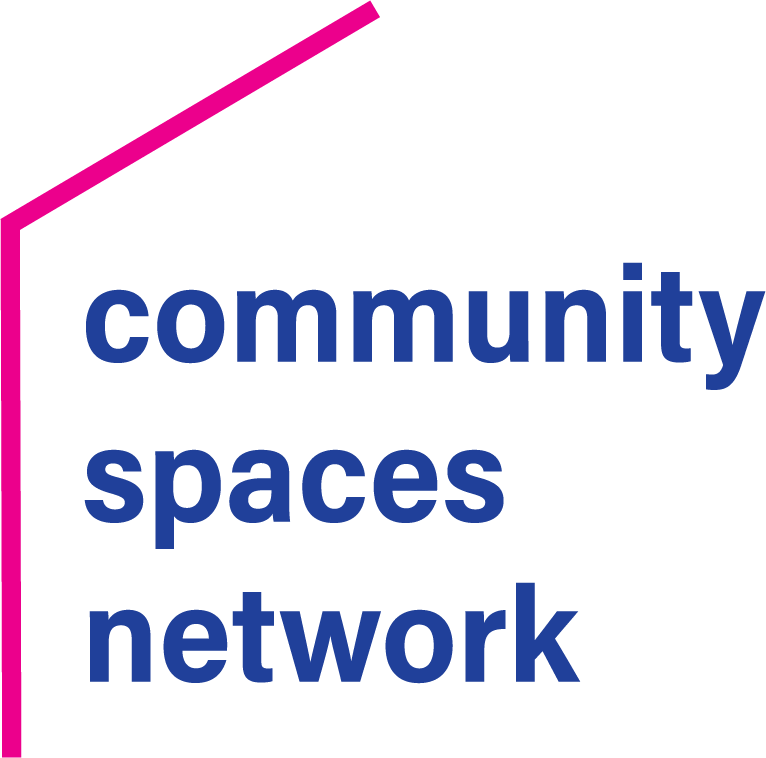The Plantory hosts an innovative and energizing coworking hub that fosters collaboration and nurtures growth for positive, passi onate, and community-minded businesses and nonprofit organizations. Our goal is to build a more diverse, connected, and sustainable nonprofit sector in Lexington, KY. We currently house 71 organizations for incubation in our 15,000 square foot building, which was formerly a Rainbo bread factory. Through our center, we support growth and collaboration through coworking space, training and technical assistance, shared fundraising, staff and volunteer support, consulting services and more.
onate, and community-minded businesses and nonprofit organizations. Our goal is to build a more diverse, connected, and sustainable nonprofit sector in Lexington, KY. We currently house 71 organizations for incubation in our 15,000 square foot building, which was formerly a Rainbo bread factory. Through our center, we support growth and collaboration through coworking space, training and technical assistance, shared fundraising, staff and volunteer support, consulting services and more.
As part of our programming, we host 10-12 interns per year, from high school up to the master’s level. Our interns come from local private schools, Fayette County Public Schools, Transylvania University, Asbury University, Blue Grass Community and Technical College and the University of Kentucky. Our internships teach students skills related to research, community development, facilitation, marketing, nonprofit management, business management and community center management. We also sponsor, recruit, train and supervise interns for organizations in our space that need support, but that may not have the capacity or staff to manage interns. Additionally, we accept project requests from our members, so we can match their needs with our interns’ skills. We keep updated posts about available internships on our internship page and accept online applications from intern applicants. Member organizations can also request support through our internship request form.
We began hosting interns in 2012, when we received a request from Mara, a senior in the College of Social Work at the University of Kentucky. We believe in building collaboratively and positively. Mara and our later interns helped us shape our intern experience through the strengths-based approach, which guides much of our work here in the community. As we’ve shaped our internship program, we’ve learned a lot. Here are five of our top tips:
- Assess your return on investment: First, don’t take interns if you don’t have enough for them to do. This is the fastest way to ruin an internship and waste your time. Second, pay attention to where your time goes and make sure you’re planning effectively. Our interns serve approximately 23 hours per week, and we spend an average of 6 hours on supervision for 1 intern. Increasing the number of interns to 5 increased the time investment to about 10 hours, but provided a much higher rate of return. (Six hours of my time for 23 hours of service is about 38% time return, but 10 hours of my time for 115 hours is about a 115% rate of return. Huge difference!)
- Be efficient: One of the best things we’ve come up with is having a weekly training hour with all of our interns. We use this time to apply a nonprofit management guide and curriculum to our operation. This guarantees that we’re meeting their educational needs, but instead of spending 5 hours on training each intern for an hour, we cover it in 1 hour. Plus, they learn from each other and can share experiences to maximize their learning. We also utilize a project management tool called Asana. When I’m out of the office, I can log in to their project records and see what they’ve accomplished or if their progress has stagnated (usually a sign that they’re stuck).
- Be collaborative: Having bored interns sitting around doesn’t help your organization. Having interns who are excited to execute their projects – that really adds value! We offer two types of internships. One is a prescribed internship, in which projects, goals, and expectations are outlined by us, and we recruit someone to fit that role. Our other internship is a co-crafted internship, where we match interns’ strengths, interests and learning goals with our organizational needs, so we can create plans for sustained efforts. For example, we had a great high school intern, Kristina, who was very interested in art. Around the time she started, we lost a couple of our partners to suicide, and the community expressed that they wished they had better shared their appreciation of these individuals before it was too late. The staff identified the need for a place where we could regularly encourage and appreciate each other in the community. Kristina designed an interactive wall mural on a big cork wall where members could leave positive messages for each other. She designed it, painted it, cut out leaves for people to write on a
 nd generated a sustainability plan (including social media). This project worked so easily not only because she was a very talented and driven intern, but also because we co-created a project that played to her strengths.
nd generated a sustainability plan (including social media). This project worked so easily not only because she was a very talented and driven intern, but also because we co-created a project that played to her strengths. - Include them: Our interns work with our staff and participate in all staff duties, like staff meetings. Including them as part of the team helps us maintain our community and helps the interns more quickly learn the culture. I empower the staff members to train them, and older interns also train newer ones. We require them to be present in our organization for at least a week before they begin project work so they can get to know people and absorb the culture. They also help with projects like our community lunch and daily activities around the center as part of their participation in the community.
- Understand intern culture: When I was an intern, I did grunt work and learned by absorbing what was around me and volunteering for everything anyone would let me do. Interns were the lower rung of the ladder, and everyone knew that. Now, due to legislation, educational shifts and cultural changes, the expectations of an internship are very different. Schools have very specific requirements, and most internships have limitations on grunt work. Be prepared for interns that expect to have meaningful projects and educational components addressed. We use learning contracts with our interns to set project goals and ensure we’re meeting the schools’ expectations. Although we require our interns to cover administrative duties just like the staff does, they have primary projects they are responsible for completing. They work on these projects while they cover the front desk, so that they are part of the team/administration but with a higher level of responsibility and participation.
Lastly, don’t forget to have fun and learn from each other. We love having interns because they bring a fresh perspective, ask new questions that help us analyze our processes, and bring renewed energy and their unique passions and strengths into the center every semester.

